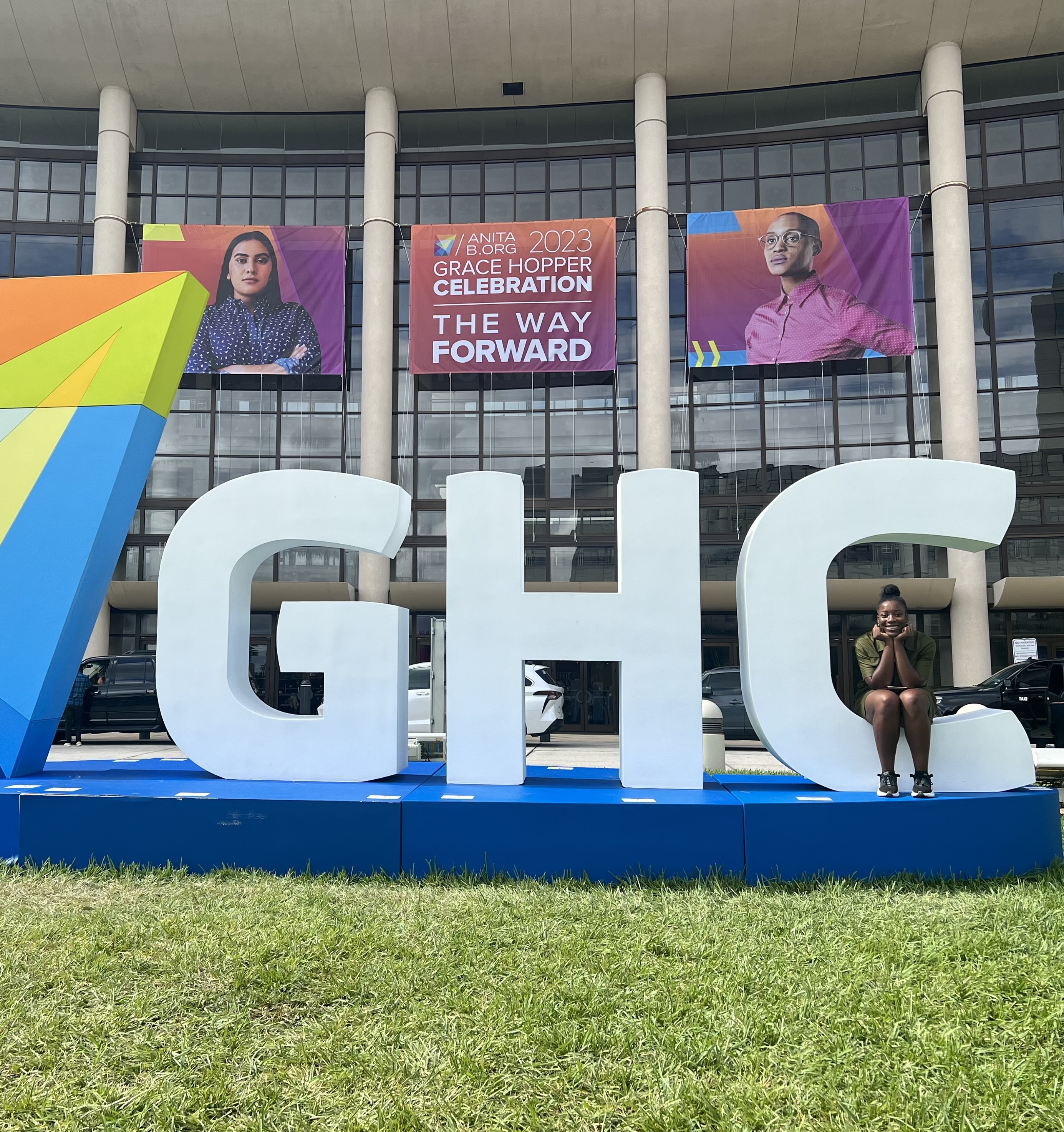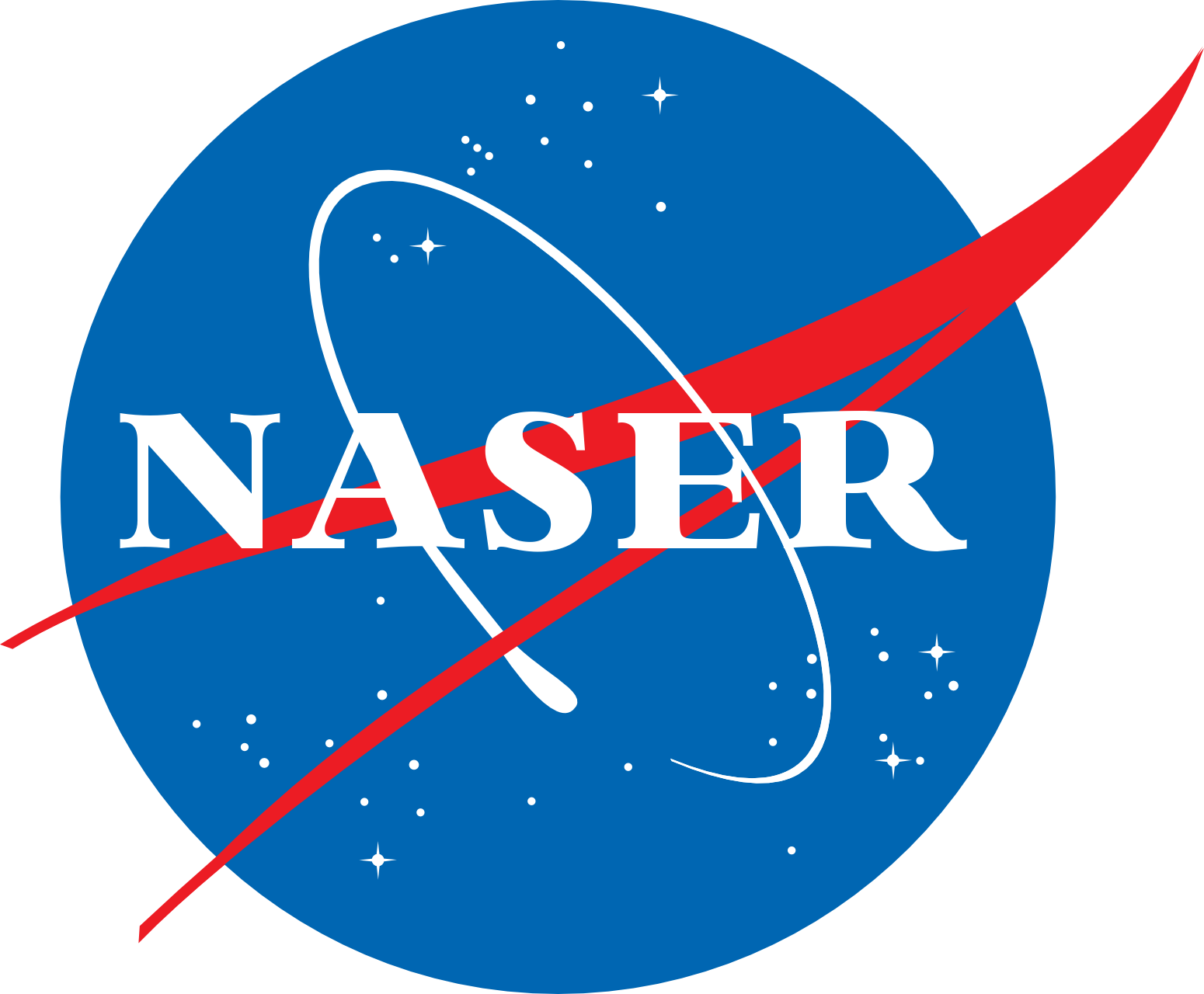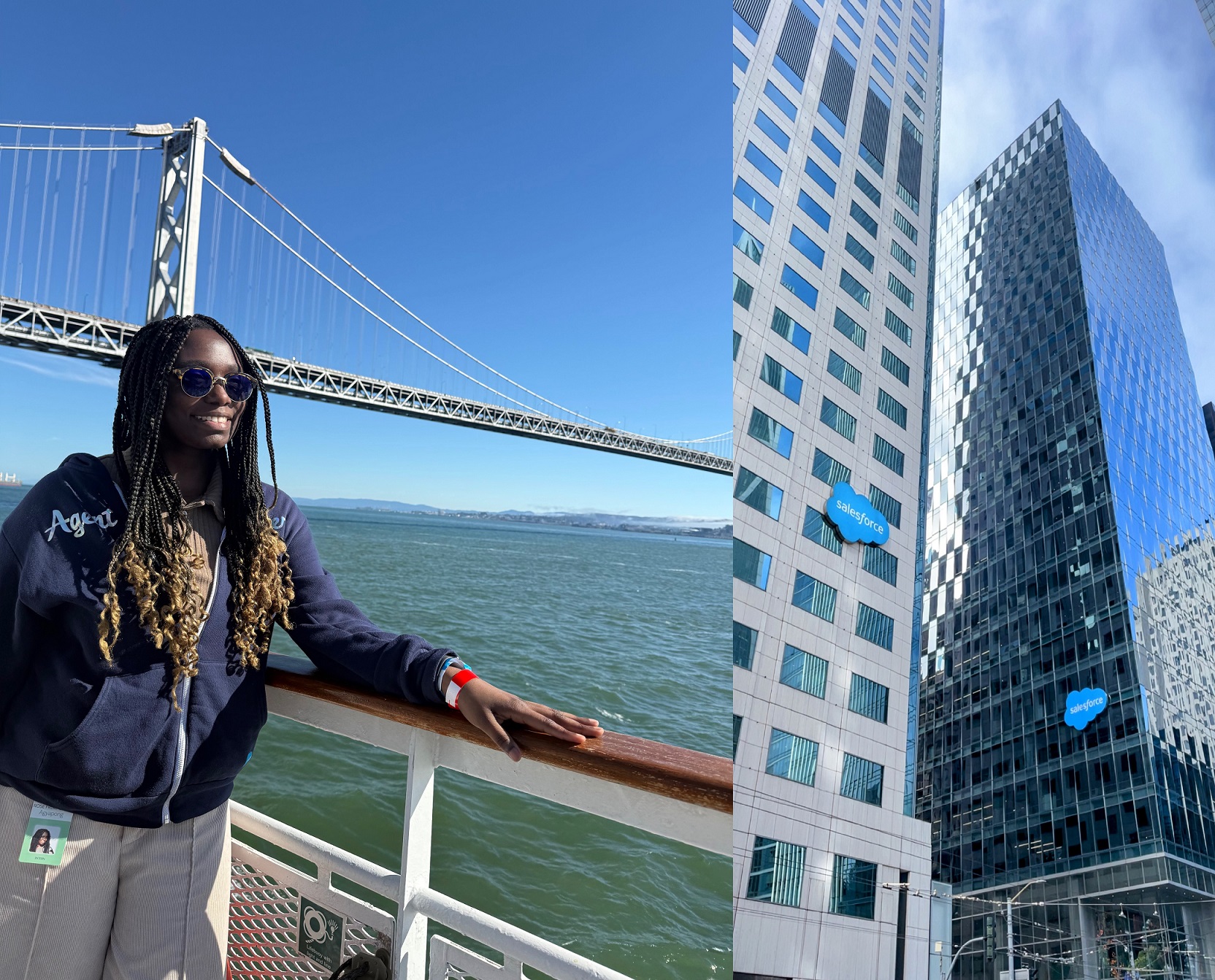A Journey to Grace Hopper Celebration: Insights from Adaobi Nebuwa ‘24
Written on February 11th, 2024 by Naser
Photo by Adaobi Nebuwa ‘24
This post is part of a spotlight series highlighting the work of exceptional students and alumni. The series aims to facilitate knowledge sharing on topics such as internships, jobs, entrepreneurship, and graduate school.
Today, I have the pleasure of talking to Adaobi Nebuwa ‘24 about her recent experience at Grace Hopper Celebration.
Naser: Can you tell us a bit about Grace Hopper Celebration of Women in Computing and its history?
Adaobi: Grace Hopper, an influential pioneer in the history of technology, was one of the first women to earn a doctorate degree in mathematics. During World War II, she joined the U.S. Naval Reserve and worked on the Mark I computer. Grace Hopper also played a pivotal role in creating the first compiler for computer languages and was honored as the first female recipient of the National Medal of Technology in 1991. The Grace Hopper Celebration (GHC) was established in 1994 by Dr. Anita Borg and Dr. Telle Whitney to commemorate Grace Hopper’s legacy and inspire future generations of women in technology. Originally conceived as an academic conference for female faculty to connect with their peers, it has since evolved into the world’s largest annual gathering of women technologists. GHC unites women in the field of computing, placing a strong emphasis on their research and career aspirations while highlighting their invaluable contributions to the tech industry. GHC offers a rich platform for collaboration, networking, and mentorship, featuring presentations by accomplished leaders in their respective fields who recognize the paramount significance of diversity in technology. This celebration also provides numerous avenues for professional development, facilitating learning, networking, and celebrating women’s achievements in the global technology landscape.
Naser: What events/activities did you attend and which was your favorite?
Adaobi: I was able to attend a plethora of events and sessions, but my favorite was definitely the Community Lounges. I was able to attend the Community lounge for the African communities and European communities. I had the privilege of engaging with both the Community Lounge for African communities and the one dedicated to European communities. These lounges created a unique environment for networking, sharing experiences, and participating in discussions that not only proved enriching but also deeply resonated with me. The connections forged, and the conversations I engaged in during these community-focused sessions had a lasting impact on my overall GHC experience. The sense of belonging and the exchange of ideas within these small, intimate spaces significantly contributed to the unity and empowerment that GHC embodies. Additionally, during the conference, we had the opportunity to meet up with Colby Alumni Heejon Ahn, who was so valuable in hearing about her experiences with graduating from Colby and navigating the CS world.
Naser: How did you prepare for attending GHC, and what would you recommend to students who plan to attend in the future?
Adaobi: Professor Doore and Saki Imai helped me a lot with this part, but the first step in preparing for the Grace Hopper Celebration (GHC) or any similar event is to develop a concise and compelling self-introduction. This is often referred to as an “elevator pitch.” It should highlight your skills, experiences, and what sets you apart from others. Once you have your self-introduction ready, the next step is to practice it repeatedly. You can do this with friends, family, or even in front of a mirror. The goal is to be able to deliver it confidently and naturally. Before the event, it’s important to research the companies or organizations that will be present. Understanding their values, recent projects, and job opportunities will help you ask insightful questions and show your interest. GHC is a great opportunity to network. Be open to meeting new people, whether they are recruiters, speakers, or fellow attendees. Remember, everyone there is interested in technology and inclusion, just like you! After the event, don’t forget to follow up with the people you’ve met. This could be a thank-you email to a recruiter or a LinkedIn connection request to a speaker. This helps to build long-term professional relationships. Remember, the goal is not just to land a job or internship but also to learn, be inspired, and grow your network. Enjoy the experience!
Naser: You are someone who succeeded in research and recently in a summer internship at The Jackson Lab, what unique perspectives or insights did you gain from attending GHC?
Adaobi: One of the most significant takeaways was the emphasis on the importance of diversity in technology. The diversity and inclusivity aspects of GHC have been eye-opening, exposing me to different kinds of backgrounds, experiences, and perspectives. Attending sessions that celebrated diversity in tech and research broadened my understanding of the global impact our work can have when informed by varied viewpoints. Specific discussions, such as those on inclusive design and equitable research practices, challenged my preconceptions and prompted a reevaluation of my own research methodologies. GHC’s commitment to inclusivity has motivated me to actively seek out diverse perspectives in my research, fostering a more comprehensive and equitable approach to problem-solving. Another insight I took away from was networking; GHC provided an exceptional platform for networking, both in formal settings and informal interactions. Participating in roundtable discussions, workshops, and social events allowed me to connect with professionals who shared my research interests or offered fresh perspectives from different domains. One notable collaboration emerged from an informal discussion during a networking break. I connected with a researcher whose work overlapped with mine in unexpected ways. This serendipitous encounter led to a collaborative project between our institutions, enriching the scope and impact of our research endeavors.
Naser: What tips would you give students interested in attending GHC in the future but not sure where to start? You can mention any details that you like, including websites and other resources.
Adaobi: The first step to attending GHC is to register on the official GHC website. It can be extremely expensive to register, but there are resources out there to either get a scholarship to attend or a discount of some sort. Here are a few: Google GHC Scholarship, AnitaB.org GHC Scholarship. To stay updated on important dates, scholarship opportunities, and other news, attendees can follow GHC on social media and subscribe to their newsletters. When you register, attendees are granted a one-year Premium Membership, which offers access to a range of premium member-only events. It’s really useful to take advantage of this membership. To make the most of the experience, it’s important to plan ahead and familiarize yourself with the agenda. The official GHC app provides a comprehensive overview, allowing you to sign up for sessions that match your interests. There is also a resume hub where you can upload your resume before attending; this allows recruiters to see your resume before the actual conference in some cases, you may be asked to have an on-site interview or chat, so make sure you upload your up to date resume on the hub in advance. While GHC is primarily for women and non-binary individuals, cisgender men are also welcome to attend, but as allies, I think that is cool and extremely important when attending events like this.


